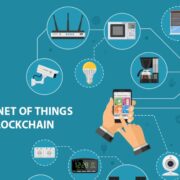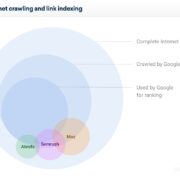Are you attacking robots? Seriously?
“War is the father of all things,” the Greek philosopher Heraclitus knew more than 2,500 years ago. The Internet and Silicon Valley are children of the military. In the beginning, Silicon Valley, a hotbed of digital superpowers like Facebook and Google, was a branch of the US Department of Defense. One of the great pioneers and masterminds was Norbert Wiener. He founded the new science of cybernetics at the end of World War II and remained a realist. In his last work, “Gott und Golem,” Wiener also warned against the “apparatus worshipers” who, like Goethe’s sorcerer’s apprentice, forgot the password with which they can turn off their magic.
Thomas Rid describes cybernetics as a general theory of machines in his new book “Maschinendämmerung.” Rid researches and teaches in England at the Department of War Studies and is a military researcher. He considers the rise of machines to be a useful myth. The technological promises have so far never been kept. At the turn of the millennium, the Pentagon pursued a new dimension of the war in space with “cyberspace.” It is not the machines that take over; the cybernetic myth takes over. It is not man and machine that merge, but myth and machine.
Rids successful short story of cybernetics is a story of creative failure: every machine myth either awakens a new false hope for a more peaceful, fairer world or stirs up fears of the uncontrolled automation of learning machines that will eventually replace humans.
Martin Ford also sees the age of robots, artificial intelligence, and automation coming in his new book “The Rise of Robots.” Machines, according to Ford, will not only increase our productivity, but they will also transform themselves into workers and replace people in the long run. The new “unemployed future” has serious socio-political consequences: The world of work and capital are becoming more blurred than ever.
In the future, the wave of automation will not only affect transport companies, loan officers, insurance experts, and service staff. Even executives and superiors – from doctors to lawyers to supervisory boards – can no longer be sure of their role in the future: All routine activities can be digitized and automated. The average hourly wage for a robot is less than six euros. Even in developing and emerging countries, their use is already worthwhile. For Ford, the stagnation of average wages in many Western countries is proof that the automation of work is already having an effect: no office job is safe anymore.
Will the digital market economy replace the social economy in the future?
The book “Smarte Maschinen” by Ulrich Eberl delivers the all-clear. For the longtime head of innovation communication at Siemens and today’s science and technology journalist, the advantages of the new, intelligent working environment outweigh the rest. We will get used to robots that can build houses, write articles, and take care of us in the future.
Eberl predicts that the jobs that have been outsourced to China or India will return because intelligent machines are now taking them over. It will be much more important to be close to the customer and to produce as flexibly and individually as possible. When and where the work is done will become less important. Eberl sees the age of networked virtual teams coming, the proportion of freelancers will increase significantly. The biggest challenge is the restructuring of our education system. Creativity is becoming the key to the new digital world of work.
During the First Industrial Revolution, John Stuart Mill wrote that “there could be no more legitimate concern for government” than to look after the livelihoods of those being replaced by machines. Martin Ford also advocates an unconditional tax-financed basic income – and thus joins a growing movement. Many venture capitalists from Silicon Valley and also the head of Deutsche Telekom are campaigning for the new social benefit. Finland is currently the first country to test the basic income and justifies the experiment with the advance of robots.
But maybe everything will turn out differently. More than 50 years ago, the “Spiegel” with the title “Entry of Robots” opened and warned of the era of automation. A few years later, the computer age also reached Germany, which the same magazine welcomed with the title “Progress makes you unemployed.” The picture shows a robot grabbing a worker and moving him to one side.
First the revolution, then the execution?
Automation is not a curse but a blessing for humanity. Instead of running against the machine and fighting it, we should run and cooperate with it. Every activity that a machine can do, it should do. That’s why we developed it: Machines should give us more time that we can use for other, more meaningful activities.
The real activity of man lies in his creativity; reproduction is a matter for the machine.
Sure: we will have to learn to work with robots in the future. Nevertheless, the machine remains our tool, our golem. We stay the original. The price we have to pay in the end in the age of machines and robots is different. We will have to learn what we really want.




















Comments